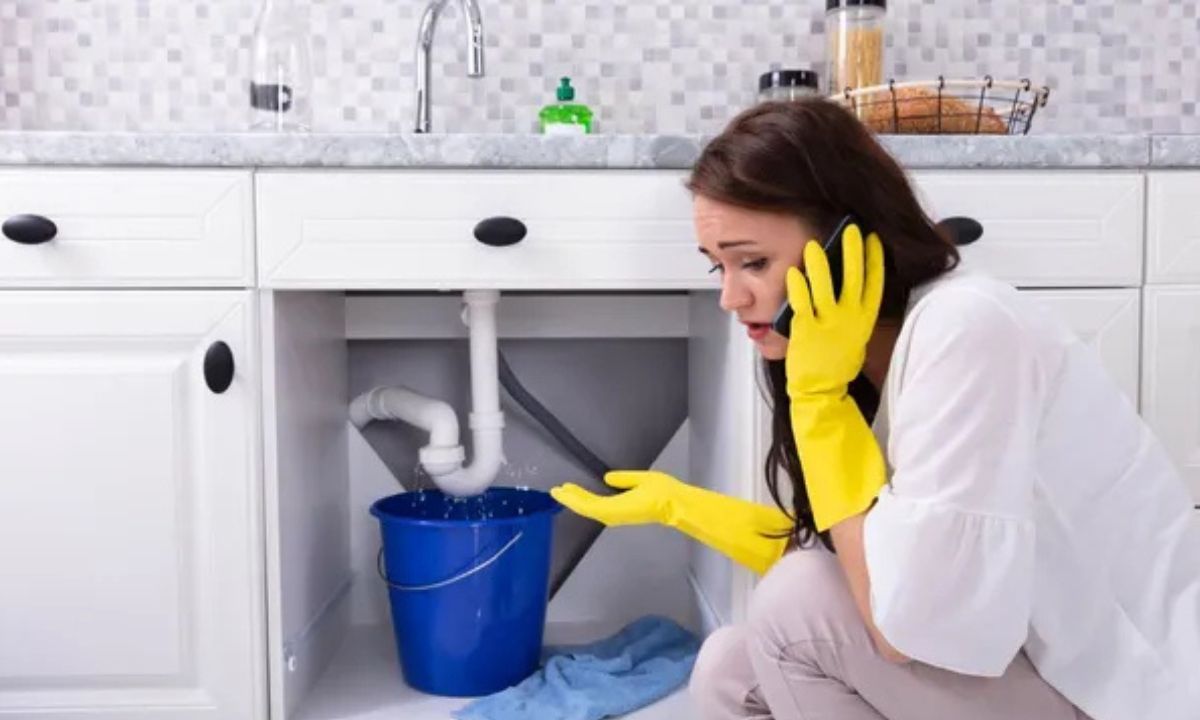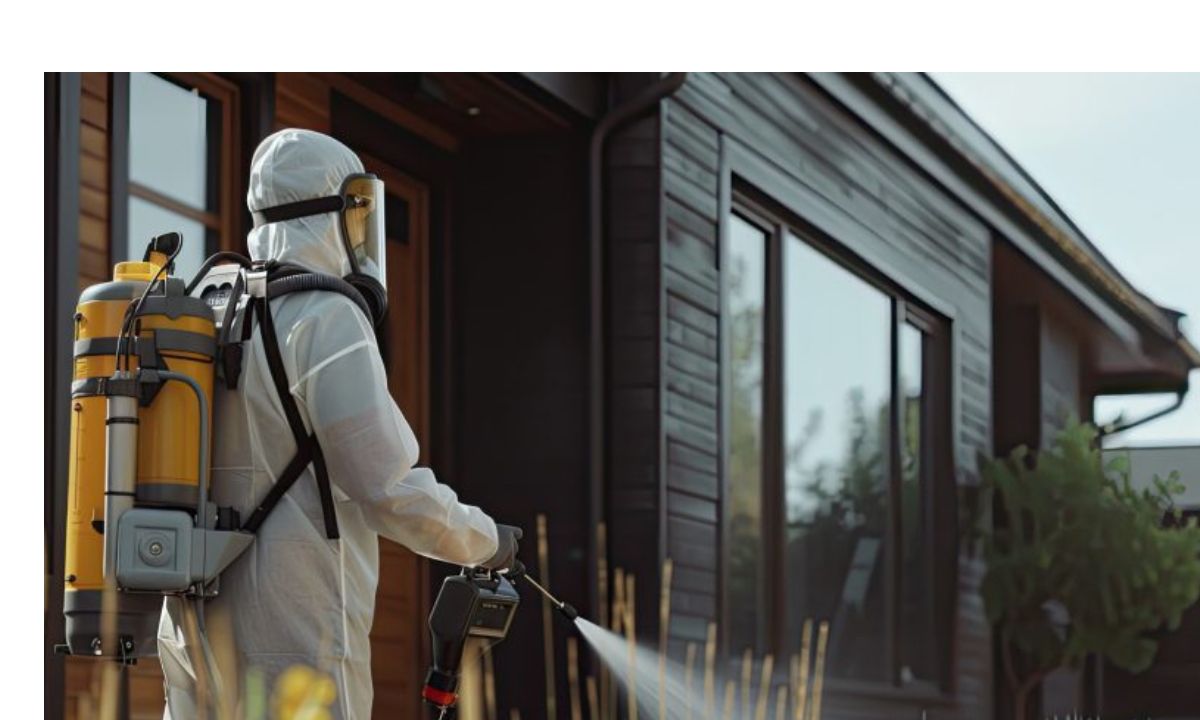General
Decoding Spanish D 94: Your Comprehensive Guide

The world of language and culture is filled with fascinating details to explore, and one such intriguing aspect is Spanish D 94. As a term that you might not have encountered before, we’re here to walk you through the what, why, and how of Spanish D 94. This guide aims to dive deep into the subject, revealing what lies beneath the surface of this intriguing phenomenon.
What is Spanish D 94?
Spanish D 94 is a term that weaves together the Spanish language with a specific element identified as “D 94”. To truly grasp what Spanish D94 is all about, we need to dig into the linguistic intricacies and cultural connotations that it carries.
Delving Into Spanish D94
Linguistic Aspects
Spanish D94 is embedded in certain linguistic peculiarities. This might represent a particular dialect, a phrase, or even a linguistic evolution within the Spanish language. Unraveling its linguistic significance takes us on a journey through its roots, its various expressions, and the context in which it is used.
Cultural Connotations
Spanish D94 isn’t just about language. It may also carry considerable cultural weight, associated with historical events, traditions, or societal norms that help shape the cultural landscape of Spanish-speaking communities.
A Trip Through Time: The Historical Context of Spanish D94
To fully appreciate what Spanish D94 represents, we need to step back in time and understand its history.
Tracing the Roots
The origins of Spanish D94 may be found in historical records and linguistic studies. Whether it sprang from a specific region, a unique historical event, or was born out of cultural exchanges, understanding its roots is key to gaining a rounded view.
Evolution Over Time
Languages are not static; they evolve and shift over time. Spanish D94 is no exception. By exploring its various evolutionary phases, we can gain insights into how it has changed and developed, and how it continues to be relevant today.
Spanish D 94 in Today’s World
Transitioning from the world of history to the present day, we must examine how Spanish D94 is used and understood in the contemporary context.
Modern Usage
How is Spanish D94 used in today’s conversations, in literature or digital platforms? Understanding its current use provides us with a snapshot of its ongoing influence in the world of Spanish language.
Impact on Language Dynamics
Languages are continually changing, and Spanish D94 has certainly had its impact on the Spanish language. Whether it has introduced new expressions, changed grammatical structures, or has spurred linguistic creativity, its influence is worth investigating.
Applying Spanish D 94
Finally, we need to connect the theoretical to the practical by looking at the specific scenarios in which Spanish D94 plays a role.
Professional Communication
In professional environments, understanding nuances in language is crucial. How does Spanish D94 influence business conversations, transactions, or formal discussions?
Cultural Celebrations and Events
Language is at the forefront of cultural events and celebrations. How does Spanish D94 feature in traditional ceremonies, festivals, or community gatherings?
Digital Landscape
In our digital age, how does Spanish D94 shape online interactions, social media engagements, or digital content creation?
Wrapping Up
In this exploration of Spanish D94, we’ve journeyed through its history, its modern relevance, and its practical applications. By dissecting this linguistic and cultural phenomenon, we hope to give you a deeper, more nuanced understanding of Spanish D94.
FAQs
What does “Spanish D 94” mean linguistically?
Spanish D 94 could represent a specific dialect, phrase, or linguistic evolution within the Spanish language.
Why is Spanish D 94 significant culturally?
Spanish D 94 could be associated with historical events, traditions, or societal norms that play a role in shaping the cultural fabric of Spanish-speaking communities.
What are the origins of Spanish D 94?
Historical records and linguistic studies can help trace the origins of Spanish D 94.
How has Spanish D 94 evolved over time?
Spanish D 94, like languages, is dynamic and has undergone evolutionary phases.
In what practical scenarios does Spanish D 94 play a role today?
Spanish D 94 could be present in professional communication, cultural celebrations, and the digital landscape.
YOU MAY ALSO LIKE
Guia Silent Hill Geekzilla: Exploring the Silent Horror Universe
General
Easy Steps to Take Before Calling a Plumber

Before calling a plumber, check for visible leaks around faucets and pipes and attempt basic troubleshooting, like tightening connections or clearing minor clogs with a plunger. Turn off the water supply to prevent further damage and note any unusual sounds or odors from drains. These steps can help resolve minor issues and provide helpful information for the plumber if professional help is needed.
Understanding the Basics
When faced with a plumbing issue, it’s easy to feel overwhelmed and immediately think of calling a plumber. However, having a fundamental understanding of your home’s plumbing system can be incredibly empowering. Think of it like knowing your car’s essential components–you’re better equipped to handle minor issues and communicate more effectively with professionals. In most homes, the system combines several elements: water supply, fixtures, appliances like water heaters, and drainage systems. Each component is pivotal in ensuring water flows in and out efficiently. By familiarizing yourself with these aspects, minor problems can be identified early, and potential issues can be prevented before they escalate.
Check for Leaks and Drips
While minor leaks and drips may seem insignificant initially, they can significantly increase your water bill and damage your plumbing system if ignored. Before contacting an emergency plumber, scrutinize all visible faucets and pipework to identify any issues needing prompt attention. Begin by checking under sinks, behind appliances, and where joints or valves might occur. A gentle wrench turn can secure a connection and solve the problem. In other cases, identifying a worn-out washer or seal could lead to a simple replacement fix. Consistently monitoring these areas can prevent the development of mold and structural issues, which come with more severe consequences and expenses.
Unclog Drains Naturally
Clogged drains are among the most frequent problems homeowners encounter, yet they often can be addressed without outside help. A clogged drain can arise from various causes, such as an accumulation of hair, soap scum, and other debris. Start with a tried-and-true plunger or a household mixture like baking soda followed by vinegar. This combination not only breaks down the blockage but also neutralizes odors. Remember, avoid using chemical drain cleaners, which, though effective in the short term, can corrode pipes over time and lead to more severe issues. By keeping pests and odors at bay and maintaining a regular cleaning schedule using natural agents, you can protect the integrity of your plumbing system.
Adjust Water Pressure
More than simply a tiny annoyance, a sudden loss in water pressure may be a sign of a plumbing system issue. Check if all fixtures are affected or just one. If the entire house appears to experience low pressure, start by verifying that the main water shut-off valve is fully open; sometimes, it might be slightly closed, impacting the flow. Additionally, mineral deposits can block aerators — small attachments at the end of faucet spouts. Removing, cleaning, and replacing them every few months can dramatically improve pressure and extend the life of your fixtures.
Inspect Water Heater
Your water heater is essential for comfort and daily routines. If it stops providing hot water, several checks might restore its function. Ensure the thermostat is adjusted to the desired temperature, usually between 120 and 140 degrees Fahrenheit. Inspect the pilot light on gas heaters; if it’s out, relighting it might solve the problem. For electric models, ensure the circuit breaker hasn’t tripped. Sometimes, a simple reset can bring things back to normal. Drain the tank annually to clear out sediment build-up, ensuring efficiency and extending lifespan.
Research DIY Repairs
Many minor household plumbing issues are within the reach of handy homeowners, thanks to the wealth of information available online. Resources like This Old House are invaluable, offering step-by-step guides on common problems like a frequently running toilet or a slow-draining sink. Attempting these repairs can be both rewarding and economical. However, constantly evaluate the expertise required and your comfort level to avoid unintentional damage. After successfully fixing a minor plumbing issue, the sense of accomplishment can enhance your confidence in handling future home maintenance tasks.
Know When to Call a Pro
While tackling minor issues can be cost-effective and rewarding, knowing when to call a professional is critical to prevent exacerbating a problem. Certain situations, such as persistent sewer odors, drastic drops in water pressure, or visible water damage, indicate severe issues that require expert diagnosis and repair. Burst pipes or flooding due to defects in underground plumbing are emergencies that need immediate professional attention. Acting swiftly not only upholds the safety of your home but also can prevent a minor mishap from snowballing into a significant, costly repair.
Be Prepared for the Call
If you’ve decided that professional assistance is necessary, being prepared can lead to a smoother resolution. Clearly articulate the issue to give the plumber a head start on diagnosing the problem. Knowing details like the age of pipes or the brand and model of problematic appliances can make a difference. Reliable sources like Angie’s List advise selecting the right professional, focusing on credentials, experience, and reviews from previous clients. Such preparation ensures efficient service, saving time and money while restoring the plumbing to optimal function.
General
Managing Household Pests: Prevention Tips for a Pest-Free Home

Key Takeaways
- Household pests can cause significant damage and health issues if not managed properly.
- Prevention is more effective and economical than dealing with infestations.
- Simple lifestyle changes can reduce the likelihood of pest infestations.
- Knowing when to seek professional assistance is crucial for maintaining a pest-free home.
Recognizing Common Household Pests
Household pests can turn a cozy home into a nightmare if not addressed promptly. Common invaders such as ants, rodents, and cockroaches can wreak havoc by damaging structures, contaminating food, and spreading diseases. Taking pest control measures is crucial, but implementing preventive strategies that keep these unwelcome guests at bay is even more so. By adopting a proactive approach, homeowners can effectively reduce the risk of infestations and maintain a healthy, comfortable living environment.
The Impact of an Infestation
An infestation can lead to severe consequences if not addressed on time. Structural damage is common, as rodents can chew through woodwork and wiring, posing fire hazards. Health risks are also significant, with pests like cockroaches potentially spreading bacteria and allergens that exacerbate asthma and allergies. According to a recent report, pests in the home can lead to diseases and other health complications, highlighting the importance of addressing these issues swiftly. Professional pest control services can help mitigate these risks, ensuring a safe and healthy living environment.
Basic Prevention Techniques
Prevention begins with maintaining a clean and orderly home. Regularly cleaning areas where food is stored and consumed, closing gaps around windows and doors, and addressing plumbing leaks will reduce the likelihood of pest intrusion. Storing food in airtight containers and disposing of garbage frequently will cut off essential resources for pests. Additionally, inspecting for and repairing structural vulnerabilities can prevent entrances for these uninvited guests.
Advanced Prevention Strategies
To enhance your pest prevention efforts, consider how the exterior of your home can deter pests. Ensuring that branches and shrubs do not touch your house can prevent pests like ants and rodents from using them as bridges. Deploying non-toxic repellents and humane traps can further discourage pests without harming children, pets, and the environment. This sustainable approach to pest control aligns with an increasingly eco-conscious mindset, allowing you to protect your home responsibly.
Seasonal Pest Challenges
Pests exhibit different behaviors as the seasons change, which can influence the type and intensity of infestations. For example, ants may be more active during warmer months, searching for food and moisture. Colder months might see an influx of rodents seeking shelter from the elements. Understanding seasonal pest patterns allows homeowners to adopt timely measures, adapting their strategies according to the time of year. Reviewing these seasonal strategies can help in planning year-round pest control efforts.
Signs it’s Time to Call a Professional
While many pest issues can be managed with DIY methods, there are situations where professional intervention is necessary. Persistent or large-scale infestations often require the expertise and tools that professional pest control services offer. Signs indicating the need for professional help include gnawed wires, nesting materials, or repeated sightings despite your best efforts. Professionals provide targeted solutions, vastly reducing the time and effort required to manage severe pest problems effectively.
Long-Term Home Upkeep for Pest Control
Once you’ve achieved a pest-free home, ongoing vigilance is crucial to maintain that status. Regular home inspections can help identify new vulnerabilities that pests could exploit. Simple modifications, like adding door sweeps or fixing cracks, can serve as long-term deterrents. Establishing a habit of routine maintenance and prevention will not only safeguard your home but also foster a healthier living space for your family.
Conclusion: A Pest-Free Future
Adopting a proactive stance against pests brings numerous benefits beyond mere comfort. Implementing these prevention strategies can save time, money, and stress in the long run. As the adage goes, an ounce of prevention is worth a pound of cure. By staying informed, prepared, and vigilant, you can protect your home and family from the challenges posed by household pests, ensuring a safer, healthier future.
General
Amaziğ: The Rich Woven Artwork of Berber Culture

The Berber people, also known as the Imazighen, have an ancient and enigmatic culture that has withstood the test of time, preserving its unique traditions, language, and art. Among the many forms of artistic expression cherished by the Berbers, Amaziğ weaving stands out as a profound and intricate testament to their creativity and skill. From the deserts of Morocco to the mountains of Algeria, the colorful strands of Amaziğ not only adorn homes but also tell stories and carry the spirit of a people through generations. This rich woven artwork, which has captured the interest of art enthusiasts and cultural explorers worldwide, is far more than just a tapestry; it’s a living document of Berber heritage. In this extensive exploration, we uncover the threads of Amaziğ and the tapestry of Berber culture they unravel.
Historical Origins of Amaziğ
Weaving Through Time
The history of Amaziğ weaving can be traced back centuries, if not millennia. With archaeological evidence suggesting the existence of loom weights and spindles in ancient Berber sites, it is clear that textiles have played an integral role in the Berber way of life since time immemorial. The significance of weaving in Berber society goes beyond utility; it is a form of art that has been intertwined with rituals, ceremonies, and everyday life.
Pride in Pattern
For the Berbers, weaving was not just a craft but also a language, with each pattern, color, and even the direction of the weave conveying a specific meaning. From the early loincloths and shawls to the later complex tapestries and rugs, these weavings were not only utilitarian but also spiritual, serving as amulets, dowries, and bearers of family and tribal identity.
Techniques and Materials
The Craft of the Loom
The traditional methods of Amaziğ weaving are as varied as they are sophisticated. In the rugged landscapes of the Atlas Mountains and the Sahara, Berber women have mastered the art of hand-weaving using techniques passed down within their families. The loom itself, often simple in design, becomes a conduit for the weaver’s expression, allowing complex patterns to emerge with precision and patience.
Strands of Identity
The materials used in Amaziğ weaving are as diverse as the landscapes where Berber tribes have settled. Wool, from the flocks that roam the mountains, is a primary material, providing warmth and a tactile quality that is both rugged and comforting. Dyes are derived from natural sources, such as pomegranate skins, saffron, and indigo, adding a spectrum of colors that reflect the earth and sky of the Berber world.
Symbolism and Designs of Amaziğ
Threads of Meaning
Central to Amaziğ weaving are the patterns and motifs that adorn the textiles. These designs are not haphazard but deliberate, carrying with them a wealth of symbolism. Geometric shapes like diamonds, crosses, and triangles often represent natural elements, celestial bodies, and protective spirits. Each tribe and region has its own unique repertoire of symbols, creating a visual language that is at once personal and communal.
A Tapestry of Culture
The art of the Berber weaver is not one of mere decoration; it is a profound expression of identity and worldview. The intricate designs are filled with references to Berber cosmology, animism, and Islam, all existing harmoniously within the same piece. To gaze upon an Amaziğ weaving is to immerse oneself in the cultural tapestry of the Berbers, to glimpse their history, beliefs, and aspirations.
Contemporary Impact
Preserving Tradition
In the face of modernization and globalization, efforts to preserve the tradition of Amaziğ weaving have taken on renewed importance. Non-profit organizations, cooperatives, and individual artisans are working tirelessly to ensure that the art and techniques of Berber weaving are passed to the next generation. These initiatives not only safeguard a cultural heritage but also provide economic empowerment for Berber women who are often the primary weavers.
Weaving the Future
The influence of Amaziğ weaving has extended beyond the Berber community, finding admirers and collaborators across the globe. Contemporary fashion designers, interior decorators, and artists are looking to the tradition of Berber weaving for inspiration, creating a bridge between the ancient and the avant-garde. This cross-pollination of cultures is not dilutive but adaptive, with Amaziğ crafts taking new forms and finding new audiences while remaining rooted in their cultural context.

Appreciation and Collectibility
The Value of Art
The contemporary art world is waking up to the value of Amaziğ weaving, with collectors and connoisseurs recognizing the singular beauty and richness of these textiles. Fine examples of Amaziğ weavings are sought after for their historical significance, intricate designs, and vibrant colors. From humble village homes to prestigious auction houses, the artistry of Amaziğ weaving is finding its place among the most treasured artifacts of human creativity.
Collecting the Cosmos
For those who appreciate the art and culture behind Amaziğ weaving, collecting these pieces is akin to amassing a gallery of Berber history. Each weaving is unique, a window into a specific time, place, and cultural ethos. Collectors of Amaziğ are not merely accumulating objects; they are gathering a cosmos of stories, traditions, and the shared spirit of the Berber people.
Conclusion
In the art of Amaziğ, we find the essence of Berber culture—colorful, complex, and resilient. The weavings of the Imazighen are more than just artifacts; they are voices from the past, calling out to be heard in the present. They carry with them the warmth of the desert, the purity of the mountain air, and the vibrant tapestry of a people who have lived in harmony with their world for countless ages.
For those who seek to appreciate and support the art of Amaziğ weaving, there are many avenues to engage. Visit the weavers in their mountain villages, where the hum of the loom is a song of continuity and community. Purchase these works of art from reputable sources, ensuring that the legacy of the weavers is honored and their craft fairly compensated. Share the story of Amaziğ weaving, spreading awareness of this beautiful and profound expression of human ingenuity.
The Berber tradition of weaving is not a relic of the past; it is a living, breathing art form that evolves with each new thread. By celebrating and supporting Amaziğ, we become weavers of a different kind, connecting the world to the heritage of the Berber people and ensuring that their vibrant cultural tapestry continues to be woven into the fabric of human appreciation.
-

 Technology9 months ago
Technology9 months agoBoosting Customer Engagement Through App Loyalty Programs
-

 Blog10 months ago
Blog10 months agoThe Rich Culinary Heritage of Cassasse: A Delightful Journey into a Cultural Dish
-

 Technology9 months ago
Technology9 months agoWhat is Geöe? All You Need to Know in 2024
-

 Blog10 months ago
Blog10 months agoUnveiling the Delightful World of Pollaste: A Culinary Journey
-

 Technology11 months ago
Technology11 months agoGeekzilla Podcast: A Remarkable Journey into Geek Culture
-

 Blog8 months ago
Blog8 months agoUnveiling the History of Buší: A Traditional Delicious Dish
-

 Blog10 months ago
Blog10 months agoMaterialistic Princess Spoilers Complete Story 2024
-

 General10 months ago
General10 months agoUnveiling the Marvels of Chagaras: Palm Grasshoppers





















